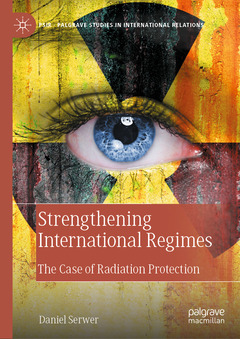Description
Strengthening International Regimes, 1st ed. 2024
The Case of Radiation Protection
Palgrave Studies in International Relations Series
Author: Serwer Daniel
Language: English
Subject for Strengthening International Regimes:
348 p. · 14.8x21 cm · Hardback
Description
/li>Contents
/li>Biography
/li>Comment
/li>
Daniel Serwer (Ph.D., Princeton) is Senior Fellow at the Foreign Policy Institute of the Johns Hopkins School of Advanced International Studies (SAIS), where he was previously Professor and Director of the Conflict Management and American Foreign Policy programs. He has served as a Vice President at the United States Institute of Peace and as a Minister-Counselor at the U.S. State Department.
Uses the case of radiation protection to probe key issues in the discipline
Examines the history of radiation protection up to the present from the perspective of regime theory
Very timely

